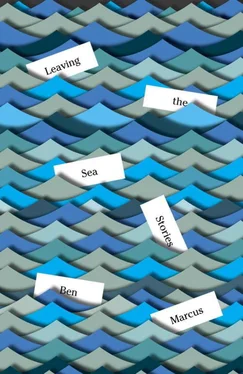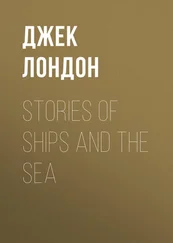Underfoot was a carpet the color of absolutely nothing, and in any case Thomas too often found that the shoe-gazing posture—staring at your feet and lost in thought—was a glistening invite to be questioned and entreated or otherwise involved in something quite outside the bounds of one’s reasonable and well-earned solitude. Hang that shingle and be fucked, he knew. He would not be caught staring at his feet, and the busy nature of the colleague—the weevil show she had chosen to stage—gave him a perfect spectacle to rubberneck. If he was being watched— if? —then he could aver to the instincts of that short-haired, single-toothed animal he had read about, whose eyes will follow motion and color, which was bursting in front of him and which he’d be a fool to ignore (not because what the woman was doing was even remotely interesting, but because to overlook the frenzy would seem highly suspicious and, to repeat a phrase from the quarterly review of his performance at work, dangerously insular ).
It was unfortunate that so much could be learned by watching someone refill her coffee, and he wondered how knowing someone was supposed to help with the basic erotic problem. In mere minutes he had developed knowledge about the colleague that was especially, uh, not without issues. For instance, she was afflicted with a tragic longness nearly everywhere: in the arms, the face, and, most dramatically, the torso, which seemed to require something like a cummerbund—women might have another name for this, no doubt, a catalog-friendly product term that upgraded the sexuality of what was essentially a surgical scarf—to conceal the area that a shirt would normally cover. The concern that seized Thomas was that this kind of garmenting could never be emotionally withstood, in terms of sheer human endurance, falling beyond what he felt he could survive without hurling himself off a roof. It was astonishing how alienating it was—a sash!—because Thomas would have to deal with it if he and the colleague ever became involved in a romantic tishy tash, to untie and fold and place it somewhere, or even, fucking hell, to tie it for her after breakfast under the blank and milky eye of her medically dead father who was wheeled in each morning for cereal as she dashed off to a conference, leaving Thomas behind to clean up her disastrous house which…Thomas put a halt to that one, deeply outside of any likely reality, a form of inner travel he excelled at and which at times could yield useful material worth sharing with the public, and yet he felt a surge of anger at the colleague in any case, as he stood behind her at the beverage cart, drawing up steam in her shadow. Did it actually matter that those things had not, and would not, happen? And by whose expert accounting? There was good mileage in their remote possibility; this fury could not have been wholly invented, and in the end it was her fault that such a thing could even be thought . Her fault entirely. Such was the colleague’s power to disturb him, and weren’t potential mates meant to be soothing in some regard, rather than provoking such terrible worry so quickly?
Not that he would, or ever could, know, and a Theory of the Ideal Mate was too unbearably something something to pursue. At a certain point, any blood-filled mate with the power of speech would do, but the whole thing was a pipe dream anyway. They were getting coffee at the same time and that was it. Years ago, Juney would have said to him, Thomas, the sun hasn’t come up on that idea yet . And tucked far back into her smile would be the panic that was soon to permanently seize her mouth. As for the colleague, the sheer monolith of courtship had yet to be scaled, and Thomas understood with a shudder that what courtship mostly entailed these days (throughout known history, perhaps) was the grueling scrutiny of an endless parade of her friends—all of them spoiled somehow, if not by outright poison poured over their faces so their flesh appeared melted and stank of fruit, then spoiled internally, rotted out, and primed to hate anyone who meant to cuddle and leak with their friend. No doubt the colleague’s friends festered in a world of private jokes, finished one another’s sentences, and turned every courtship into a game of…He tried to think of a game involving rifles and children and the race to build coffins. If these friends excelled at something, it was at deliriously liking one another despite all good sense. Just as the world gazed coldly at the moronia steaming off these people, they would close ranks and love one another more fiercely. They would test Thomas’s sense of humor, his resilience, his irritability quotient— off the freaking charts, Colleague! —and his basic endurance for the most, well, for actually any conversation, because to talk to any of them even beyond the brutality of a shared “hello” would feel like, it would feel…Thomas was too tired to call up the specific form of torture—and the notion of producing a metaphor for himself seemed suddenly ludicrous—but he finally saw himself crushed under an iron slab, able to breathe just enough to panic and worry and panic and then finally to die of fear. He’d not survive such a gauntlet, and he could think of far better ways to feel like utter shit than to waddle up to a bar and drag his face through a range of barely acceptable gestures with a group of her friends, who may as well have worked over his groin with a hammer and saw.
It would not be a good day for such an examination anyway, even if he had time to go home and change after work. That morning, Thomas had risked the pants that showed everything, darted khakis that could siphon a single drop of pee from his weeping, cold appendage and bloom a fist-sized stain on the fabric before he’d even returned to the seat where he could hide his crotch. Perfect wicking material, his pants. The sweetest feature of his cubicle was that it hid what he called his little horrible from the medical scrutiny that was the basic sensory currency at his employ. The true meaning of cubicle: No one can see your crotch. He’d already wadded a parcel of tissue over the offending eye during one of his fourteen trips to the bathroom, but that, too, had ultimately proxied a haze of dampness that was already bordered—to anyone who cared to look—in a ring of what appeared to be salt. A tide line had seized his pants, and it was a puzzling development. Was there salt in urine? Or, more likely, had something in his urine cocktailed with the laundry detergent used to clean his khakis? Thomas himself crotch gazed mostly to avoid eye contact, a type of connection hugely misunderstood and, to his mind, misused. But crotch gazing brought in important evidence, and why wouldn’t the others in the office have their scopes trained on his? What a time to be at large in the office and waiting for a big-and-tall woman to beverage up before he could even get his own drink and vanish.
A salutation with the colleague’s name seemed the best move. But throughout his six years at the lab, Thomas had been told this woman’s name so many times that in its place all he could summon was a dull sound in his head, chuff chuff chuff, like bone being scraped with a knife. He could recall the circumstances each time he had been told her name—where he had been standing, who had told him her name, and how he had summoned his face into a gesture of interest until it ached with fatigue, an effort that occupied him so totally that he failed to do the one thing that mattered during the transaction—commit this woman’s name to memory. What was the name in biology for species that exhibited reverse, or was it perverse, learning? Thomas couldn’t remember. Something something. A four-legged, hot-bellied creature that took the wrong cues and constantly impaled itself, raped by bears, subject to night weeping. Reversely deducing, was some language Thomas remembered about the thing. But the colleague’s name wouldn’t come to him now, just the sound of a body being carved to pieces. He thought he could produce this sound with his mouth if she cheated her face his way, cough it at her, now that she was at the fixings table, and she would have to appreciate how he had renamed her abstractly, a pure word that had never been spoken before. But actually the colleague would have to do no such thing except possibly pretend, as politely as she could, that this hovering man, breathing on her—whose penis, she knew (how could she not?), was abnormally cold, was so preposterously cold in the tip—she would have to pretend that he had not lost control of his body in such close proximity to hers. His sound for this colleague would be beautiful, but it would probably only seem to her as though Thomas had failed to sneeze, or had shat, perhaps, a little. And then he would be marked, and her pity and scorn and indifference—the holy trinity!—would take him back to those great old days with June, before she started getting so tired, when romance consisted of a series of stuttered apologies, parsed out over the course of an agonizing day, breaking her down until a sort of exhausted indifference set in that would allow sex, sometimes, to occur.
Читать дальше












